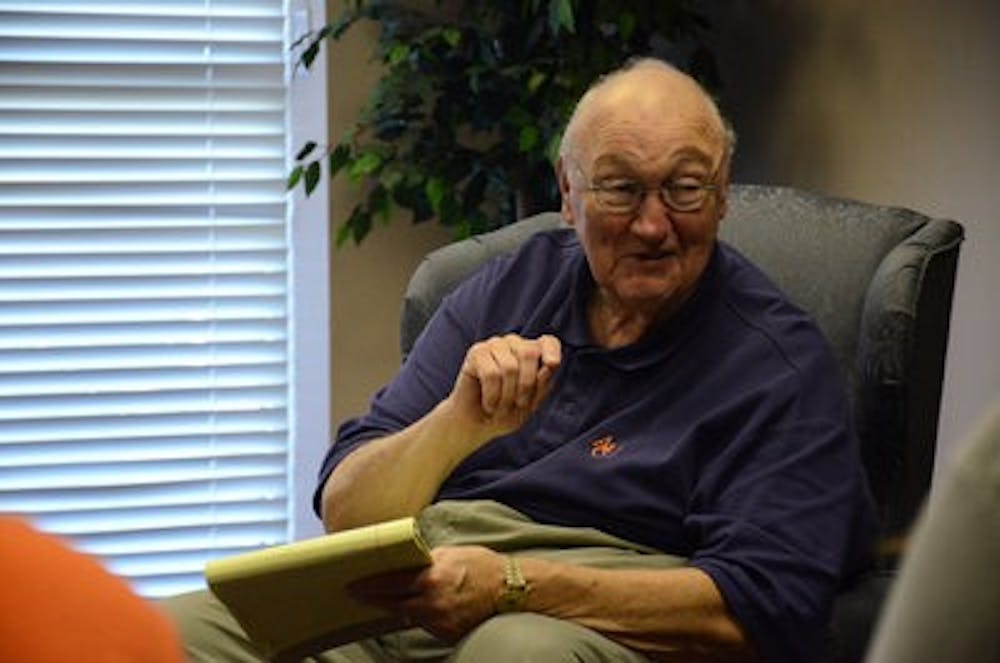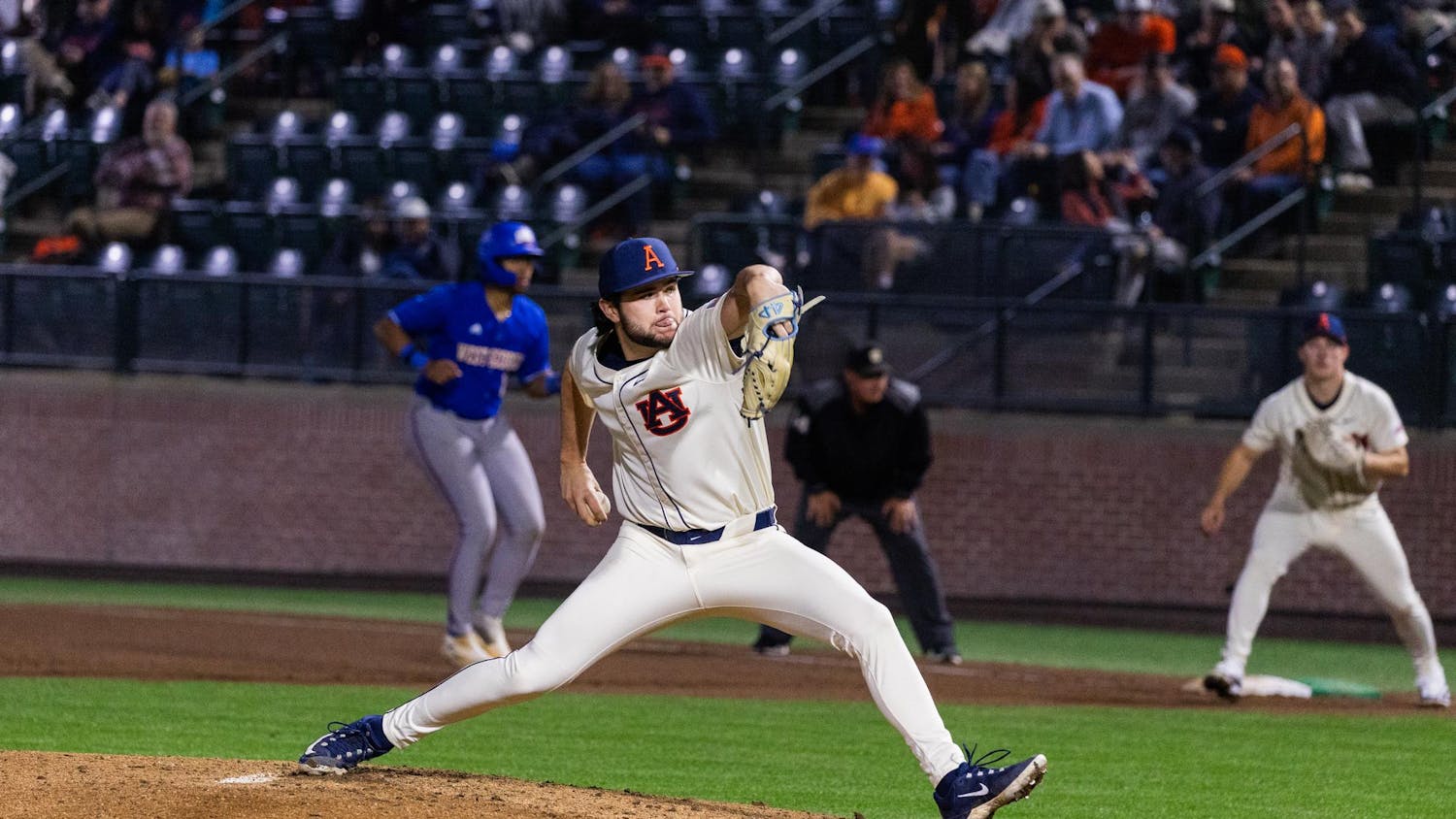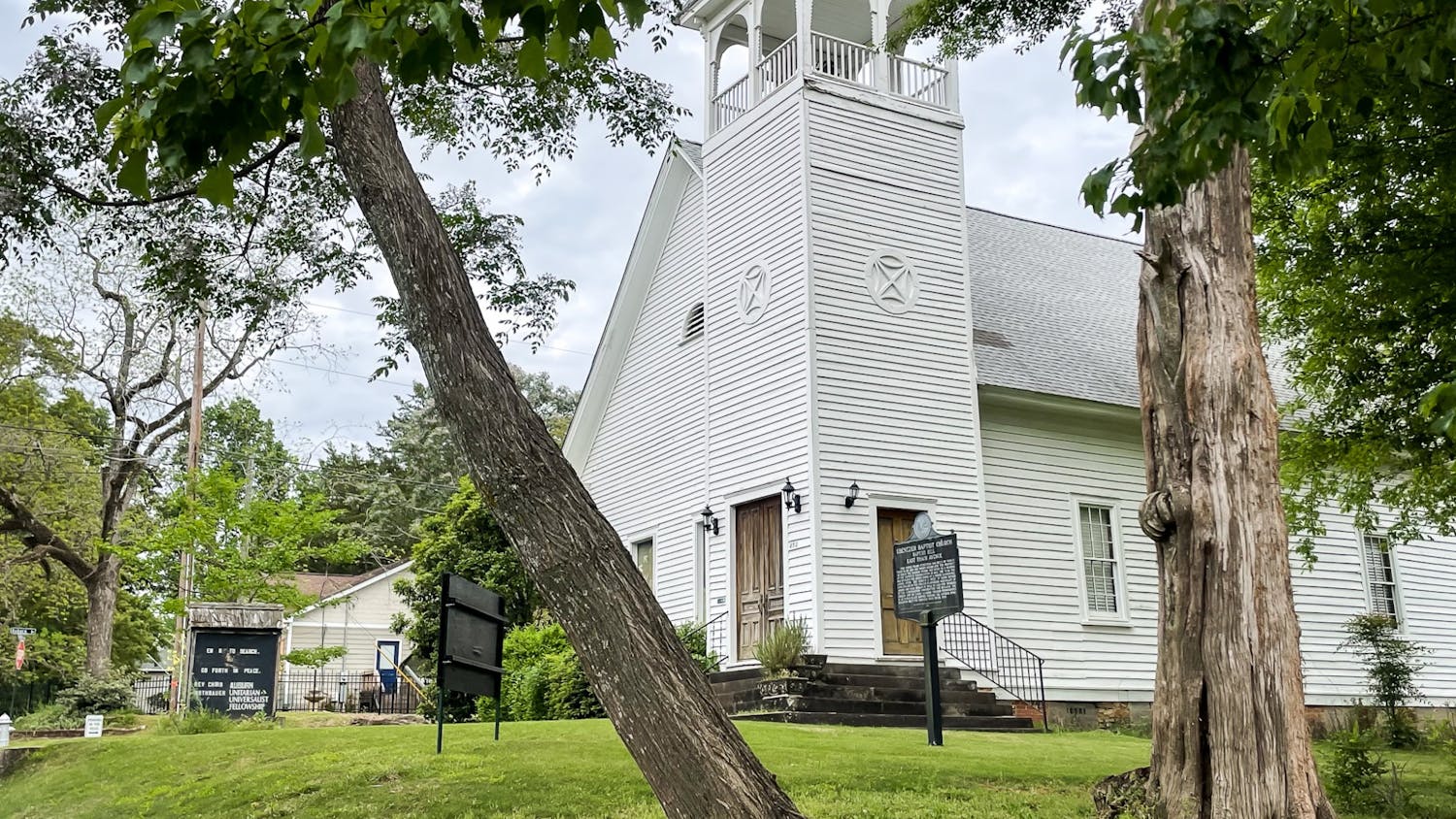Smoke billowed out from the base of the once mighty twin towers on Sept. 11, 2001. The eyes of the world locked on to New York City in disbelief of the horrors that rolled through their televisions. Life had paused.
“I really can’t put it into words," said former Athletics Director David Housel. "It was something more than fear. You can keep your head about you and be afraid.”
It was a day that shook the nation to the core, but left a profound feeling of deep sorrow and patriotism. Most of the physical damage remained in New York and Washington D.C., but the emotional damage would reach people across the nation, including those on The Plains of Auburn.
Housel, a true “lover of New York,” told The Plainsman when he “saw that second plane coming in there and hitting the World Trade Center, it still gives me chills. I’m riding down the road and still think about it sometimes.”
Housel was in Philadelphia, Pennsylvania for an NCAA cabinet meeting the morning of the attacks, and had just started the meeting when the group of various schools’ athletic administrators received the news.
“The big thing was what was going to happen that day, and how we were going to get home," Housel said. "We were just a few blocks from Independence Hall, so we were especially edgy.”
The meetings in Philadelphia would eventually be canceled and Housel knew he needed to return to Auburn. Housel explained he was fortunate enough to get the last rental car from his hotel, and he headed south with former Mississippi State Athletic Director Larry Templeton.
Housel recalled the drive back to the airport in Atlanta.
“It was quite inspirational to drive down the interstate and see those school children holding American flags over the overpass, but it was sobering to ride through Washington on the outskirts, and realize that it was a war alert," Housel said. “You pull into Atlanta airport to get your car, and they have armed troops there to take you to your car.”
Everything had been put on hold, including college football. Nothing could somber the wake of an American tragedy – not even one of its favorite sports.
Former Auburn All-American defensive back, Junior Rosegreen, told The Plainsman the Tiger football team could not have played at LSU that weekend following the attacks.
When asked about what the atmosphere was like on campus that day, Rosegreen explained that it was "pure sadness" all across Auburn. For Rosegreen, he could not begin to think about participating in a game at LSU that weekend, and could only think about his own family.
"How could you play a game like that, when something like that happens? You have to think about the families," Rosegreen said. "What if that was your family?"
“The big thing was whether or not we ought to play that weekend," Housel said. "There was some sentiment that Auburn ought to play LSU, because we would have an advantage, but it really wasn’t our call. It was the SEC’s call, and LSU’s call.”
Former rover Roshard Walker told The Plainsman in 2001 that “it was both ways” in whether the team wanted games to be continued as scheduled or canceled. “We were eager to play, but there are certain aspects you have to consider. It’s a terrible tragedy. You can’t just look at it from a football point of view.”
The nation began to mend and routines were revived as normalcy was restored in households around the country. Sports, at all levels, would prove to be a pivotal part of the healing of a hurting nation.
The SEC’s games were cancelled the weekend following the attacks, but play would continue the following weekend on Sept. 22. Auburn’s first game after the attacks would take place in Syracuse, New York, just hours from Ground Zero against The Syracuse Orange.
It was a rematch of the 1988 Sugar Bowl, where the teams played to a 16-16 tie and ended bitterly for the Orange, as Auburn head coach Pat Dye instructed Win Lyle to kick a 30-yard field goal in the final seconds to end Syracuse’s run at a perfect season.
But at this meeting, revenge would not factor in.
The Auburn football team traveled to Montgomery, Alabama, on Sept. 21 to board a plane for Syracuse. For most of the Tigers, it would be the first time setting foot on a plane since the attacks.
“We went to Montgomery and drove around, and there you saw that airplane. You thought ‘that’s just like the one that hit.’ I can’t speak for the players… but for everybody on that plane, it was a very sobering time.”
“We left Montgomery and we were flying up, and it was dark by the time we got to Syracuse, and we crossed over into New York, way over in the distance you could see the lights of Manahatten, or the lights of New York… and it was so sad. It is difficult to put into words. You were sad and you were also proud the way they had responded. They showed some spunk – American spunk.”
Auburn would ultimately lose to Syracuse in the Carrier Dome the next night, 31-14, suffering their second loss of the season. But the outcome was just a side note.
“Coming back after we lost the game, didn’t play real well, but I saw those New York lights on the way back, and it put losing into perspective” Housel said.
“I have never said I wanted Auburn to lose, but with the people of New York … those people were so relieved to be playing and so happy to win. I can’t begrudge of that.”
Rosegreen explained that the 2001 Syracuse team would not be denied that Saturday, and that the Orangemen seemed "almost possessed" in the manner in which they played.
“Syracuse, that game, they could have beaten anybody that game. They were playing with so much excitement and emotion.”
An event that disrupted the country was set-aside for a few fleeting moments so that mourners could recollect themselves and move on. Americans wept together, moved together and rebuilt together in the following weeks. It was only 15 years ago. Most students now can’t recall the events that unfolded before their child like, innocent eyes. But for Housel, a hush that captured a nation comes alive every year, like it was yesterday.
“That night when they played the 'Star Spangled Banner' in New York, it was moving,” Housel said. “I could say how quiet it was and ‘you could hear a pin drop’ and tears and all like that – but none of that captures it.”
Do you like this story? The Plainsman doesn't accept money from tuition or student fees, and we don't charge a subscription fee. But you can donate to support The Plainsman.





